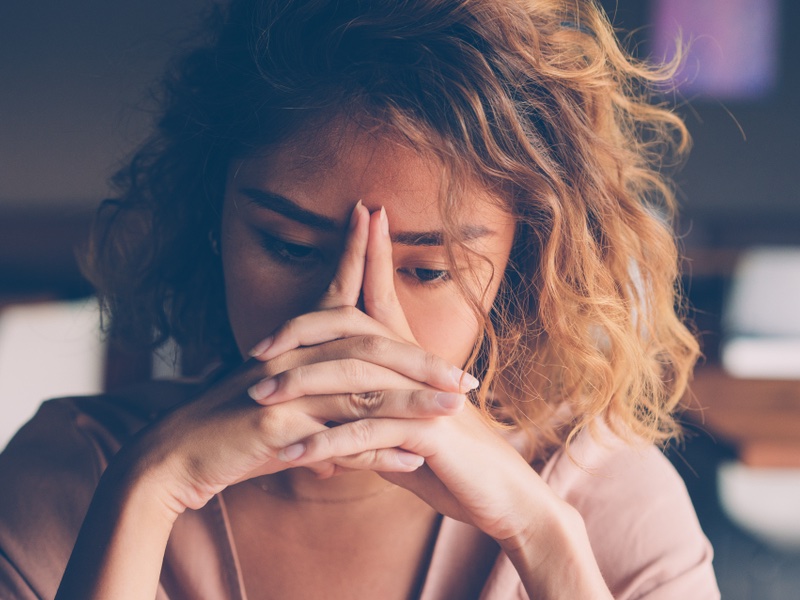
Article by Ashely Lourens, Head of Wellbeing at Plumm.
Feelings of uncertainty are a common part of the human experience.
It’s normal to feel confused, nervous, and uneasy when we tread into unknown territory or have to make an important, life-altering decision. In familiar situations and scenarios, we may take comfort in basing our decisions on past experiences. However, when we are required to make a decision in an unfamiliar context with unpredictable outcomes it can leave us feeling very uncertain. Essentially, uncertainty interrupts our ability to plan for the future. When that happens too frequently it can affect our aspirations and progress in life.
What makes us feel uncertain?
While minor uncertainties are guaranteed to pop up in our daily lives, such as picking an option from the lunch menu, having to decide what to wear, or choosing a university to enrol at, there are some more serious events that can cause intense and ongoing feelings of uncertainty. Examples of such events include civil unrest, war, natural disasters, financial crises, unemployment, and political events. When a person constantly has to deal with such severe feelings of uncertainty, it can affect their mood, stress levels, ability to focus, and even on their quality of life.
Who deals best with uncertainty?
Due to the complex and unpredictable nature of the world we live in, it is to be expected that we will experience a great deal of uncertainty over the course of our lives. Political, social, and natural events are constantly shaping our personal realities, forcing us to adapt and frequently shift things around.
In some cases, the unpredictability that comes with change can be exciting, or even thrilling. However, a person’s reaction to times of uncertainty strongly depends on two things. Firstly, the kind of person that they are and secondly, the nature of the event that has brought on the uncertainty.
Individuals who are more optimistic are likely to deal better with feelings of uncertainty, while their pessimistic peers may struggle more with resolving such feelings. Similarly, those who are adaptable and open to change will tend to be less fearful of an uncertain situation than those who enjoy the comfort of familiarity.
In spite of the different personal attributes mentioned above, research has shown that being less confident in the face of uncertainty is not necessarily a bad thing. A major study conducted on global unpredictability showed that individuals who were experts in any specific field did not make more accurate predictions of world events relating to their area of expertise than laymen (Tetlock, 2009).
The only difference in predictions was the level of confidence with which experts had made theirs. In addition, the same author found that – among the expert group – some predictions were indeed better than others, but that there was a significant negative correlation between confidence and success.
In other words, experts who tended to be less confident or sure of themselves (i.e., more comfortable with the feeling of being uncertain), were more likely to be right than those who came across as being overly confident in their predictions. This gives us two important realisations: a.) uncertainty is and always will be an inevitable part of life, which no one can truly conquer, and b.) the best way to deal with uncertainty is to approach it with humility and acceptance.
How can I deal better with uncertainties in my life?
When we feel uncertain about something, it can leave us feeling stuck, worried, and anxious. When the people around us pick up on these worries, they might try to tell us what to do or to remain positive and trust that everything is going to be fine. Although this may be a common reaction from loved ones who mean well, it may downplay the severity of the uncertainty that we are grappling with. Thereby invalidating our experience to some degree.
As with any emotion that we feel, we should not try to ignore or suppress the uncertainty, but rather accept and face it instead. By confronting the uncertainty, we can be more proactive in demising a plan to resolve it. When we try to bury the uncertainty with excuses, distractions, false confidence, or avoidant behaviours, we are likely to end up making an impulsive decision that is not backed by logical reasoning, or our true intuition. In the words of the wise Sadhguru, “Confidence without clarity is a disaster. If you cannot see clearly, at least you must be hesitant”.
When feeling uncertain, it helps to shift your focus away from the desired outcome that you hope your actions and decisions will yield. Focus rather on making the present moment the best it can possibly be. The popular phrase, “live in the moment” has become a rather clichéd thing to say. It remains a valuable philosophy – especially during these turbulent, unpredictable times that we are living in.
It is important to remind ourselves that so many aspects of our lives are being affected by factors outside of our control and that it will continue to be this way for as long as we live. We should accept our uncertainties, confront them in the most logical and authentic way, and find solace in the fact that they will one day be nothing but distant memory.








